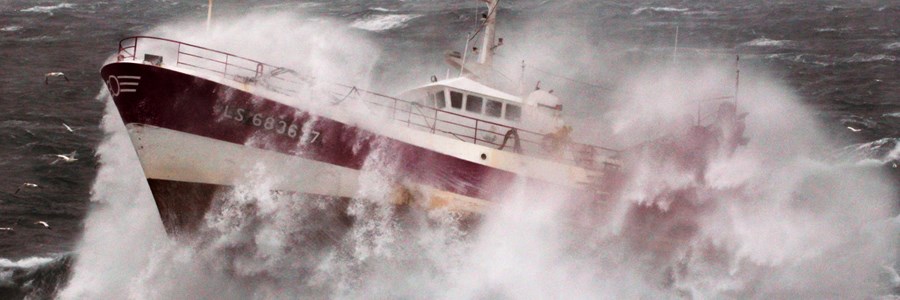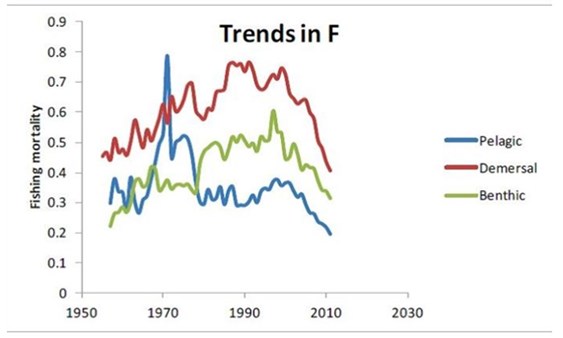The response from Europêche:

It is disappointing that your response fails to address the issues that we have raised. We drew attention to the startling divergence between the International Council for the Exploration of the Seas (ICES) view and Pew's claims about fishing pressure and the state of the stocks off North Western Europe.
To reiterate, ICES is unambiguous:
"Over the last ten to fifteen years, we have seen a general decline in fishing mortality in the Northeast Atlantic and the Baltic Sea. The stocks have reacted positively to the reduced exploitation and we're observing growing trends in stock sizes for most of the commercially important stocks. For the majority of stocks, it has been observed that fishing mortality has decreased to a level consistent with Maximum Sustainable Yield (MSY) – meaning levels that are not only sustainable but will also deliver high long term yields.”
Eskild Kirkegaard, Chair, ICES Advisory Committee
By contrast, Turning the Tide, makes the assertion that:
- Fishing in recent decades, in pursuit of food and profit, off North West Europe has dramatically expanded
- Calls by scientists and environmentalists to reduce fishing pressure have been ignored
- Many fish stocks collapsed throughout the region
- The reformed CFP should prove a successful first step in restoring and maintaining the health of the fisheries and fish stocks
Both descriptions cannot be true.
It is not clear from your letter whether you consider that ICES science is wrong, or inadequate, or whether you think there has been a dramatic recovery in fish stocks since March. We still remain in the dark about your motivations for publishing such a misleading report.
The following graph representing 50 stocks is taken from ICES and illustrates that from the year 2000 there has been a dramatic reduction in fishing mortality in the North East Atlantic and this accounts for ICES’ conclusions that we are not only fishing sustainably but are on track to deliver high long term yields (MSY).

We look forward to your response.
Yours sincerely,
Javier Garat Pim Visser
President of Europêche President of EAPO





































